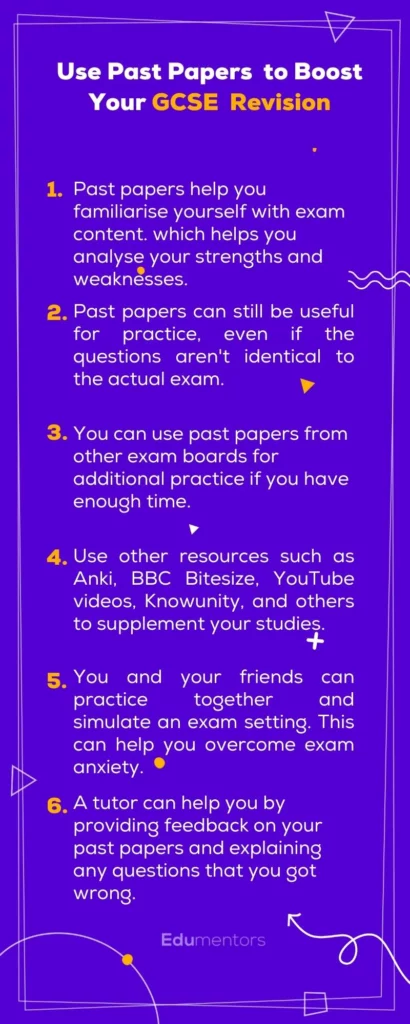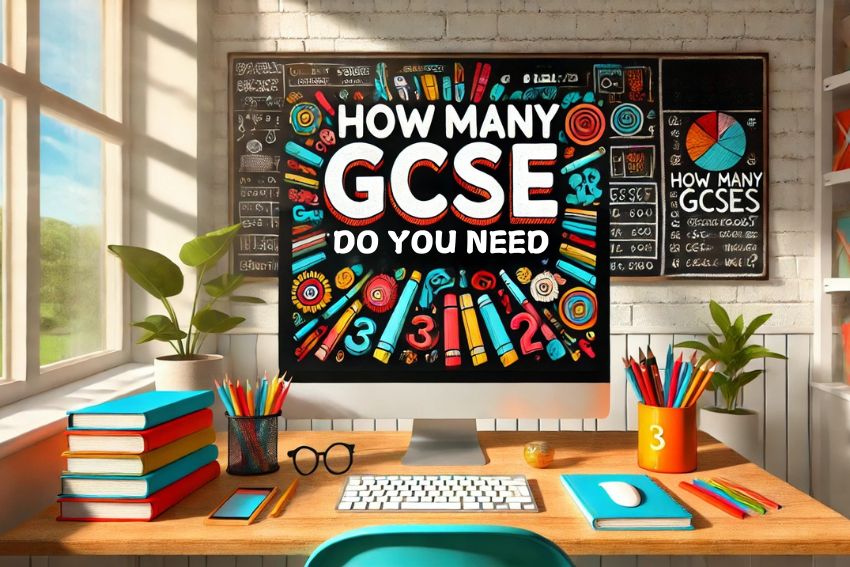Table of Contents:
AQA GCSE History Past Papers
AQA GCSE History Paper 1
Paper 1 – Section A/A: America, 1840–1895 – Expansion and consolidation – 8145/1A/A
| Insert | Question Paper | Mark Scheme |
| June 2018 | June 2018 | June 2018 |
| June 2019 | June 2019 | June 2019 |
| June 2020 | June 2020 | June 2020 |
| November 2021 | November 2021 | November 2021 |
Paper 1 – Section A/B: Germany, 1890–1945 – Democracy and dictatorship – 8145/1A/B
| Insert | Question Paper | Mark Scheme |
| June 2018 | June 2018 | June 2018 |
| June 2019 | June 2019 | June 2019 |
| June 2020 | June 2020 | June 2020 |
| November 2021 | November 2021 | November 2021 |
Paper 1 – Section A/C: Russia, 1894–1945 – Tsardom and communism – 8145/1A/C
| Insert | Question Paper | Mark Scheme |
| June 2018 | June 2018 | June 2018 |
| (Unavailable) | June 2019 | June 2019 |
| June 2020 | June 2020 | June 2020 |
| November 2021 | November 2021 | November 2021 |
Paper 1 – Section A/D: America, 1920–1973 – Opportunity and inequality – 8145/1A/D
| Insert | Question Paper | Mark Scheme |
| June 2018 | June 2018 | June 2018 |
| June 2019 | June 2019 | June 2019 |
| June 2020 | June 2020 | June 2020 |
| November 2021 | November 2021 | November 2021 |
Paper 1 – Section B/A: Conflict and tension – the First World War 1894-1918 – 8145/1B/A
| Insert | Question Paper | Mark Scheme |
| (Unavailable) | June 2019 | June 2019 |
| June 2020 | June 2020 | June 2020 |
| November 2021 | November 2021 | November 2021 |
Paper 1 – Section B/B: Conflict and tension – the inter-war years, 1918-1939 – 8145/1B/B
| Insert | Question Paper | Mark Scheme |
| June 2018 | June 2018 | June 2018 |
| June 2019 | June 2019 | June 2019 |
| June 2020 | June 2020 | June 2020 |
| November 2021 | November 2021 | November 2021 |
Paper 1 – Section B/C: Conflict and tension between East and West, 1945-1972 – 8145/1B/C
| Insert | Question Paper | Mark Scheme |
| June 2018 | June 2018 | June 2018 |
| June 2019 | June 2019 | June 2019 |
| June 2020 | June 2020 | June 2020 |
| November 2021 | November 2021 | November 2021 |
Paper 1 – Section B/D: Conflict and tension in Asia, 1950–1975 – 8145/1B/D
| Insert | Question Paper | Mark Scheme |
| June 2019 | June 2019 | June 2019 |
| June 2020 | June 2020 | June 2020 |
| November 2021 | November 2021 | November 2021 |
AQA Paper 2
Paper 2 – Section A/A: Britain: Health and the people:c1000 to the present day – 8145/2A/A
| Insert | Question Paper | Mark Scheme |
| June 2018 | June 2018 | June 2018 |
| June 2019 | June 2019 | June 2019 |
| June 2020 | June 2020 | June 2020 |
| November 2021 | November 2021 | November 2021 |
Paper 2 – Section A/B: Britain: Power and the people:c1170 to the present day 8145/2A/B
| Insert | Question Paper | Mark Scheme |
| June 2018 | June 2018 | June 2018 |
| June 2019 | June 2019 | June 2019 |
| June 2020 | June 2020 | June 2020 |
| November 2021 | November 2021 | November 2021 |
Paper 2 – Section A/C: Britain: Migration, empires and the people: c790 to the present day 8145/2A/C
| Insert | Question Paper | Mark Scheme |
| June 2018 | June 2018 | June 2018 |
| June 2019 | June 2019 | June 2019 |
| June 2020 | June 2020 | June 2020 |
| November 2021 | November 2021 | November 2021 |
Paper 2 – Section B/A: Norman England, c1066–c1100 – 8145/2B/A
| Insert | Question Paper | Mark Scheme |
| June 2018 | June 2018 | June 2018 |
| June 2019 | June 2019 | June 2019 |
| Unavailable | June 2020 | June 2020 |
| November 2021 | November 2021 | November 2021 |
Paper 2 – Section B/B: Medieval England: the reign of Edward I,1272–1307 – 8145/2B/B
| Insert | Question Paper | Mark Scheme |
| June 2018 | June 2018 | June 2018 |
| June 2019 | June 2019 | June 2019 |
| June 2020 | June 2020 | June 2020 |
| November 2021 | November 2021 | November 2021 |
Paper 2 – Section B/C: Elizabethan England, c1568–1603 – 8145/2B/C
| Insert | Question Paper | Mark Scheme |
| June 2018 | June 2018 | June 2018 |
| June 2019 | June 2019 | June 2019 |
| June 2020 | June 2020 | June 2020 |
| November 2021 | November 2021 | November 2021 |
Paper 2 – Section B/D: Restoration England, 1660–1685 – 8145/2B/D
| Insert | Question Paper | Mark Scheme |
| June 2018 | June 2018 | June 2018 |
| June 2019 | June 2019 | June 2019 |
| Unavailable | June 2020 | June 2020 |
| November 2021 | November 2021 | November 2021 |
OCR GCSE History Past Papers
OCR GCSE History A
J410/01 International Relations: the changing international order 1918–c.2001 with China 1950–1981: The People and the State
| Question Paper | Mark Scheme |
| June 2018 | June 2018 |
| June 2019 | June 2019 |
| November 2020 | November 2020 |
| November 2021 | November 2021 |
J410/02 International Relations: the changing international order 1918–c.2001 with Germany 1925–55: The People and the State
| Question Paper | Mark Scheme |
| June 2018 | June 2018 |
| June 2019 | June 2019 |
| November 2020 | November 2020 |
| November 2021 | November 2021 |
J410/03 International Relations: the changing international order 1918–c.2001 with Poland 1956–1990: The People and the State
| Question Paper | Mark Scheme |
| June 2018 | June 2018 |
J410/04 International Relations: the changing international order 1918–c.2001 with Russia 1928–1964: The People and the State
| Question Paper | Mark Scheme |
| June 2019 | June 2019 |
J410/05 International Relations: the changing international order 1918–c.2001 and South Africa 1960-1994: The People and the State
| Question Paper | Mark Scheme |
| June 2018 | June 2018 |
| June 2019 | June 2019 |
| November 2020 | November 2020 |
| November 2021 | November 2021 |
J410/06 International Relations: the changing international order 1918–c.2001 with The USA 1919–1948: The People and the State
| Question Paper | Mark Scheme |
| June 2018 | June 2018 |
| June 2019 | June 2019 |
| November 2020 | November 2020 |
| November 2021 | November 2021 |
J410/07 International Relations: the changing international order 1918–c.2001 with The USA 1945–1974: The People and the State
| Question Paper | Mark Scheme |
| June 2018 | June 2018 |
| June 2019 | June 2019 |
| November 2020 | November 2020 |
| November 2021 | November 2021 |
J410/08 Migration to Britain c.1000 to c.2010
| Question Paper | Mark Scheme |
| June 2018 | June 2018 |
| June 2019 | June 2019 |
| November 2020 | November 2020 |
| November 2021 | November 2021 |
J410/09 Power: Monarchy and Democracy in Britain c.1000 to 2014
| Question Paper | Mark Scheme |
| June 2018 | June 2018 |
| June 2019 | June 2019 |
| November 2020 | November 2020 |
| November 2021 | November 2021 |
J410/10 War and British Society c.790 to c.2010
| Question Paper | Mark Scheme |
| June 2018 | June 2018 |
| June 2019 | June 2019 |
| November 2020 | November 2020 |
| November 2021 | November 2021 |
J410/11 The Impact of Empire on Britain 1688 –c.1730 with Urban Environments: Patterns of Migration
| Question Paper | Mark Scheme |
| June 2018 | June 2018 |
| June 2019 | June 2019 |
| November 2020 | November 2020 |
| November 2021 | November 2021 |
J410/12 The English Reformation c.1520–c.1550 with Castles: Form and Function c.1000–1750
| Question Paper | Mark Scheme |
| June 2018 | June 2018 |
| June 2019 | June 2019 |
| November 2020 | November 2020 |
| November 2021 | November 2021 |
J410/13 Personal Rule to Restoration 1629–1660 with Castles: Form and Function c.1000–1750
| Question Paper | Mark Scheme |
| June 2018 | June 2018 |
| June 2019 | June 2019 |
| November 2020 | November 2020 |
| November 2021 | November 2021 |
J410/14 international relations the changing international order 1918-c.1975
| Question Paper | Mark Scheme |
| November 2021 | November 2021 |
OCR GCSE History B
J411/11 The People’s Health, c.1250 to present with The Norman Conquest, 1065–1087
| Question Paper | Mark Scheme |
| June 2018 | June 2018 |
| June 2019 | June 2019 |
| November 2020 | November 2020 |
J411/12 The People’s Health, c.1250 to present with The Elizabethans, 1580–1603
| Question Paper | Mark Scheme |
| June 2018 | June 2018 |
| June 2019 | June 2019 |
| November 2020 | November 2020 |
J411/13 The People’s Health, c.1250 to present with Britain in Peace and War, 1900–1918
| Question Paper | Mark Scheme |
| June 2018 | June 2018 |
| June 2019 | June 2019 |
J411/14 Crime and Punishment, c.1250 to present with The Norman Conquest, 1065–1087
| Question Paper | Mark Scheme |
| June 2018 | June 2018 |
| June 2019 | June 2019 |
| November 2020 | November 2020 |
J411/15 Crime and Punishment, c.1250 to present with The Elizabethans, 1580–1603
| Question Paper | Mark Scheme |
| June 2018 | June 2018 |
| June 2019 | June 2019 |
| November 2020 | November 2020 |
J411/16 Crime and Punishment, c.1250 to present with Britain in Peace and War, 1900–1918
| Question Paper | Mark Scheme |
| June 2018 | June 2018 |
| June 2019 | June 2019 |
J411/17 Migrants to Britain, c.1250 to present with The Norman Conquest, 1065-1087
| Question Paper | Mark Scheme |
| June 2018 | June 2018 |
| June 2019 | June 2019 |
J411/18 Migrants to Britain, c.1250 to present with The Elizabethans, 1580–1603
| Question Paper | Mark Scheme |
| June 2018 | June 2018 |
| June 2019 | June 2019 |
J411/19 Migrants to Britain, c.1250 to present with Britain in Peace and War, 1900–1918
| Question Paper | Mark Scheme |
| June 2018 | June 2018 |
| June 2019 | June 2019 |
J411/21 History Around Us
| Question Paper | Mark Scheme |
| June 2018 | June 2018 |
| June 2019 | June 2019 |
| November 2020 | November 2020 |
J411/31 Viking Expansion, c.750–c.1050 with The First Crusade, c.1070–1100
| Question Paper | Mark Scheme |
| June 2018 | June 2018 |
| June 2019 | June 2019 |
J411/32 Viking Expansion, c.750–c.1050 with Aztecs and the Spanish Conquest, 1519–1535
| Question Paper | Mark Scheme |
| June 2018 | June 2018 |
| June 2019 | June 2019 |
J411/33 Viking Expansion, c.750–c.1050 with Living under Nazi Rule, 1933–1945
| Question Paper | Mark Scheme |
| June 2018 | June 2018 |
| June 2019 | June 2019 |
J411/36 The Mughal Empire 1526–1707 with Living under Nazi Rule, 1933–1945
| Question Paper | Mark Scheme |
| June 2018 | June 2018 |
| June 2019 | June 2019 |
J411/37 The Making of America, 1789–1900 with The First Crusade, c.1070–1100
| Question Paper | Mark Scheme |
| June 2018 | June 2018 |
| June 2019 | June 2019 |
J411/38 The Making of America, 1789–1900 with Aztecs and the Spanish Conquest, 1519–1535
| Question Paper | Mark Scheme |
| June 2018 | June 2018 |
| June 2019 | June 2019 |
J411/39 The Making of America, 1789–1900 with Living under Nazi Rule, 1933–1945
| Question Paper | Mark Scheme |
| June 2018 | June 2018 |
| June 2019 | June 2019 |
| November 2020 | November 2020 |
J411/41 The Norman Conquest, 1065-1087
| Question Paper | Mark Scheme |
| November 2021 | November 2021 |
J411/42 The Elizabethans, 1580-1603
| Question Paper | Mark Scheme |
| November 2021 | November 2021 |
J411/43 Britain in Peace and War 1900-1918
| Question Paper | Mark Scheme |
| November 2021 | November 2021 |
J411/51 The People’s Health, c.1250 to present
| Question Paper | Mark Scheme |
| November 2021 | November 2021 |
J411/52 Crime and Punishment, c.1250 to present
| Question Paper | Mark Scheme |
| November 2021 | November 2021 |
J411/53 Migrants to Britain, c.1250 to present
| Question Paper | Mark Scheme |
| November 2021 | November 2021 |
J411/61 History around us
| Question Paper | Mark Scheme |
| November 2021 | November 2021 |
J411/71 Viking expansion, c.750-c.1050
| Question Paper | Mark Scheme |
| November 2021 | November 2021 |
J411/72 The Mughal Empire, 1526-1707
| Question Paper | Mark Scheme |
| November 2021 | November 2021 |
J411/73 The Making of America, 1789-1900
| Question Paper | Mark Scheme |
| November 2021 | November 2021 |
J411/81 The First Crusade, c.1070-1100
| Question Paper | Mark Scheme |
| November 2021 | November 2021 |
J411/82 Aztecs and the Spanish Conquest 1519-1535
| Question Paper | Mark Scheme |
| November 2021 | November 2021 |
J411/83 Living under Nazi rule, 1933-1945
| Question Paper | Mark Scheme |
| November 2021 | November 2021 |
Pearson Edexcel GCSE History Past Papers
Thematic study and historic environment (HI0)
Option 10: Crime and punishment in Britain, c1000 – Present and Whitechapel c1870- c1900: Crime, policing and the inner city.
| Question Paper | Mark Scheme |
| June 2018 | June 2018 |
| June 2019 | June 2019 |
| November 2020 | November 2020 |
Option 11: Medicine in Britain c1250 – present and the British sector of the Western front, 1914 -1918: Injuries, treatment and the trenches.
| Question Paper | Mark Scheme |
| June 2018 | June 2018 |
| June 2019 | June 2019 |
| November 2020 | November 2020 |
Option 12: Warfare and the British society c1250 – present and London and the second World War, 1939 -1945.
| Question Paper | Mark Scheme |
| June 2018 | June 2018 |
| June 2019 | June 2019 |
| November 2020 | November 2020 |
Modern depth study (HI0)
Option 30: Russia and the Soviet Union, 1917- 41
| Question Paper | Mark Scheme |
| June 2018 | June 2018 |
| June 2019 | June 2019 |
| November 2020 | November 2020 |
Option 31: Weimar and Nazi Germany, 1918 – 39
| Question Paper | Mark Scheme |
| June 2018 | June 2018 |
| June 2019 | June 2019 |
| November 2020 | November 2020 |
Option 32: Mao’s China c1945 – 76
| Question Paper | Mark Scheme |
| June 2018 | June 2018 |
| June 2019 | June 2019 |
| November 2020 | November 2020 |
Option 33: The USA, 1954 – 75: Conflict at home and abroad
| Question Paper | Mark Scheme |
| June 2018 | June 2018 |
| June 2019 | June 2019 |
| November 2020 | November 2020 |
British depth study (HI0)
B1: Anglo Saxon and Norman England c1060-1088.
| Question Paper | Mark Scheme |
| June 2019 | June 2019 |
| November 2020 | November 2020 |
B2: The Reign of Kings Richard I and King John 1189- 1216.
| Question Paper | Mark Scheme |
| June 2019 | June 2019 |
| November 2020 | November 2020 |
B3: Henry VIII and his Ministers 1509 -1540.
| Question Paper | Mark Scheme |
| June 2019 | June 2019 |
| November 2020 | November 2020 |
B4: Early Elizabethan England 1558 -1588.
| Question Paper | Mark Scheme |
| June 2019 | June 2019 |
| November 2020 | November 2020 |
Period Study (HI0)
P1: Spain and the ‘New world’ c1490 – c1555
| Question Paper | Mark Scheme |
| June 2019 | June 2019 |
| November 2020 | November 2020 |
P2: British America, 1713 – 83: empire and revolution
| Question Paper | Mark Scheme |
| June 2019 | June 2019 |
| November 2020 | November 2020 |
P3: The American West c1835 -95
| Question Paper | Mark Scheme |
| June 2019 | June 2019 |
| November 2020 | November 2020 |
P4: Superpower relations and Cold War, 1941- 91
| Question Paper | Mark Scheme |
| June 2019 | June 2019 |
| November 2020 | November 2020 |
P5: Conflict in the Middle East, 1945 – 95
| Question Paper | Mark Scheme |
| June 2019 | June 2019 |
| November 2020 | November 2020 |
FAQ About GCSE History

What topics are covered in GCSE History?
The topics covered in GCSE history can vary depending on the specific exam board and course that you are studying. However, most GCSE history courses typically cover a range of topics from different time periods and regions, with a focus on developing students’ understanding of key historical events, concepts, and themes.
Some common topics that may be covered in GCSE history include:
- The causes and events of World War I and World War II
- The impact of significant historical figures such as Winston Churchill, Adolf Hitler, and Martin Luther King Jr.
- The Cold War and the global tensions between the East and West
- The rise and fall of empires and civilizations such as the Roman Empire, Ancient Greece, and the Aztec Empire
- Key moments in British history such as the Industrial Revolution, the British Empire, and the fight for women’s suffrage
- The impact of slavery, civil rights movements, and the struggle for racial equality
It’s important to check with your teacher or exam board to see the specific topics that will be covered in your GCSE history course, as well as any recommended resources or study materials that can help you prepare for the exam.
What is the structure of the GCSE history exam?
GCSE History is more demanding than many non-core or practical subjects and requires consistent revision and practice. The structure of the GCSE history exam can vary depending on the exam board and course you are studying, but generally, the exam will consist of one or more written papers that assess your knowledge and understanding of the historical events, concepts, and themes covered in your course.
The format of the exam may include a combination of different question types, such as:
- Source-based questions: These questions require you to analyze and interpret primary and secondary sources such as photographs, documents, and maps, and use them to support your arguments and ideas.
- Short-answer questions: These questions typically require you to provide brief responses to questions that test your knowledge and understanding of specific historical events, concepts, or themes.
- Essay questions: These questions require you to write a longer, structured essay in response to a specific historical event, concept, or theme. You may be required to analyse and evaluate different perspectives and arguments, and provide evidence and examples to support your own argument.
The exam may also include a range of command words, such as “describe,” “explain,” “evaluate,” and “assess,” which require different levels of analysis and critical thinking.
It’s important to familiarise yourself with the structure and format of the exam and to practice answering different types of questions in preparation for the actual exam. You may also want to consult with your teacher or GCSE history tutor to get more specific guidance on how to prepare for the exam.
What skills are required for GCSE history?
GCSE history requires a range of skills, including:
- Knowledge and understanding: You need to have a good grasp of the historical events, concepts, and themes covered in your course. This involves being able to remember and recall key information and details, as well as understanding the significance and context of different historical events.
- Analysis and interpretation: You need to be able to analyse and interpret different sources of historical information, such as primary and secondary sources, in order to understand the different perspectives and arguments related to a particular event or theme.
- Critical thinking: You need to be able to think critically about different historical arguments and perspectives, evaluate evidence and sources, and develop your own opinions and arguments based on the information available.
- Communication: You need to be able to communicate your ideas and arguments effectively in written form, through essays and other written assignments. This involves being able to structure your ideas coherently, use evidence to support your arguments, and write in a clear and concise manner.
- Time management: You need to be able to manage your time effectively, both in preparing for the exam and in taking the exam itself. This involves being able to prioritise your studies, plan your revision effectively, and allocate your time during the exam to ensure that you are able to answer all the questions within the allotted time.
By developing these skills, you can improve your chances of success in GCSE history, as well as in other areas of your academic and professional life. It’s important to practice and develop these skills through regular study, revision, and practice exams. Additionally, you may want to seek guidance and feedback from your teacher or tutor to help you improve your skills further.
How can I improve my essay writing skills for GCSE history?
Essay writing is an important part of GCSE history, as it enables you to demonstrate your understanding of historical events, concepts, and themes in a structured and coherent manner. Here are some tips that can help you improve your essay writing skills for GCSE history:
- Understand the question: Make sure you understand the question before you start writing your essay. This involves identifying the key themes and arguments that you need to address, as well as the specific command words that indicate the level of analysis required.
- Plan your essay: Before you start writing, make a plan or outline of your essay. This will help you structure your ideas and arguments in a logical and coherent way, and ensure that you cover all the key points required by the question.
- Use evidence to support your arguments: In your essay, use evidence from primary and secondary sources to support your arguments and ideas. This might include quotes, statistics, or other forms of evidence that illustrate your points.
- Analyze and evaluate different perspectives: In GCSE history essays, it’s important to analyze and evaluate different perspectives and arguments related to the event or theme you are discussing. This involves considering different viewpoints, evaluating the strengths and weaknesses of each argument, and developing your own position based on the evidence available.
- Write in a clear and concise manner: Use clear and concise language to convey your ideas and arguments in your essay. Avoid using overly complex vocabulary or convoluted sentence structures that might confuse the reader.
- Proofread and edit your essay: Once you have finished writing your essay, proofread and edit it carefully to ensure that it is free of errors and meets the requirements of the question.
What are some effective study strategies for GCSE history?
GCSE history requires a combination of knowledge, analytical skills, and critical thinking. Here are some effective study strategies that can help you prepare for GCSE history:
- Read and review course materials: Start by reading and reviewing your course materials, including textbooks, lecture notes, and other resources. Take notes and highlight key points, concepts, and events as you read.
- Practice past papers: One of the best ways to prepare for GCSE history is by practicing past papers. This will give you a good idea of the types of questions that are likely to be asked in the exam, as well as the format and structure of the exam itself.
- Create mind maps or diagrams: Use mind maps or diagrams to help you visualise and organize the information you are learning. This can be particularly helpful for understanding complex events or themes.
- Use flashcards: Create flashcards to help you memorize key dates, events, and concepts. This is a particularly effective strategy for learning historical facts and figures.
- Work in study groups: Join a study group with classmates or friends to discuss and review course materials, share notes and insights, and practice answering questions together.
- Use online resources: There are many online resources available to help you prepare for GCSE history, including websites, podcasts, and videos. Make use of these resources to supplement your studies and gain additional insights and perspectives.
- Hire Private tutor: Private tutors help students prepare effectively for exams by working through past papers, providing practice questions, and teaching exam techniques that maximise performance.
What is on the GCSE History Paper 1?
GCSE History Paper 1 typically focuses on a thematic study and a period study. Depending on the exam board, such as AQA, Edexcel, or OCR, the exact content can vary slightly, but it generally includes:
- Thematic Study: This section covers changes and continuities over a broad time period. Examples include topics like ‘Medicine Through Time’ or ‘Crime and Punishment Through the Ages’. The questions assess your ability to understand long-term developments, key turning points, and patterns over time.
- Period Study: This part focuses on a specific era, such as ‘The American West, c1835-c1895’ or ‘Germany 1918-1939’. It involves studying significant political, social, or economic developments within the chosen period. Questions will evaluate your ability to explain the causes, consequences, and significance of events within that era.
Paper 1 also contains source-based questions, which may require you to analyse historical sources or interpretations. This section tests both your factual knowledge and your ability to critically engage with evidence, making analytical skills essential for success.
Always refer to your specific exam board’s guidelines for the most accurate details, as each board may structure the paper slightly differently.
What is the Topic of AQA History Paper 1?
AQA GCSE History Paper 1 focuses on two main areas: a thematic study and a period study. These topics are designed to assess students’ understanding of both long-term historical developments and key events within specific periods.
Option: “Germany, 1890–1945: Democracy and Dictatorship”
This topic examines the transformation of Germany from the Kaiser’s rule, through the Weimar Republic, to the rise of Hitler and the Nazi regime.
Thematic Study:
Option: “Health and the People: c1000 to the Present Day”
This topic explores how medicine and public health have developed over time, including significant figures, discoveries, and the impact of key events.
Option: “Conflict and Tension: The First World War, 1894–1918”
This focuses on the causes, events, and consequences of World War I, examining military strategies, diplomacy, and the experience of soldiers.
Period Study:
Option: “America, 1840–1895: Expansion and Consolidation”
This section delves into the expansion of the USA, looking at westward movement, relations with Native Americans, and social changes during this period.
Option: “Germany, 1890–1945: Democracy and Dictatorship”
This topic examines the transformation of Germany from the Kaiser’s rule, through the Weimar Republic, to the rise of Hitler and the Nazi regime.
How Long is History Paper 2 in Edexcel GCSE?
Edexcel GCSE History Paper 2 has a duration of 1 hour and 45 minutes.
This paper is divided into two key sections:
- British Depth Study: This section focuses on a specific aspect of British history, such as ‘Anglo-Saxon and Norman England, c1060–1088’ or ‘The reigns of King Richard I and King John, 1189–1216’.
- Period Study: This section covers a wider period with key developments, such as ‘Superpower Relations and the Cold War, 1941–91’ or ‘The American West, c1835–c1895’.
Students are required to demonstrate both their historical knowledge and analytical skills by answering questions that test their ability to explain, analyse, and evaluate key events and changes within these periods.
The 1 hour 45 minute time limit means students need to manage their time carefully, ensuring they leave enough time to answer all questions thoroughly.









